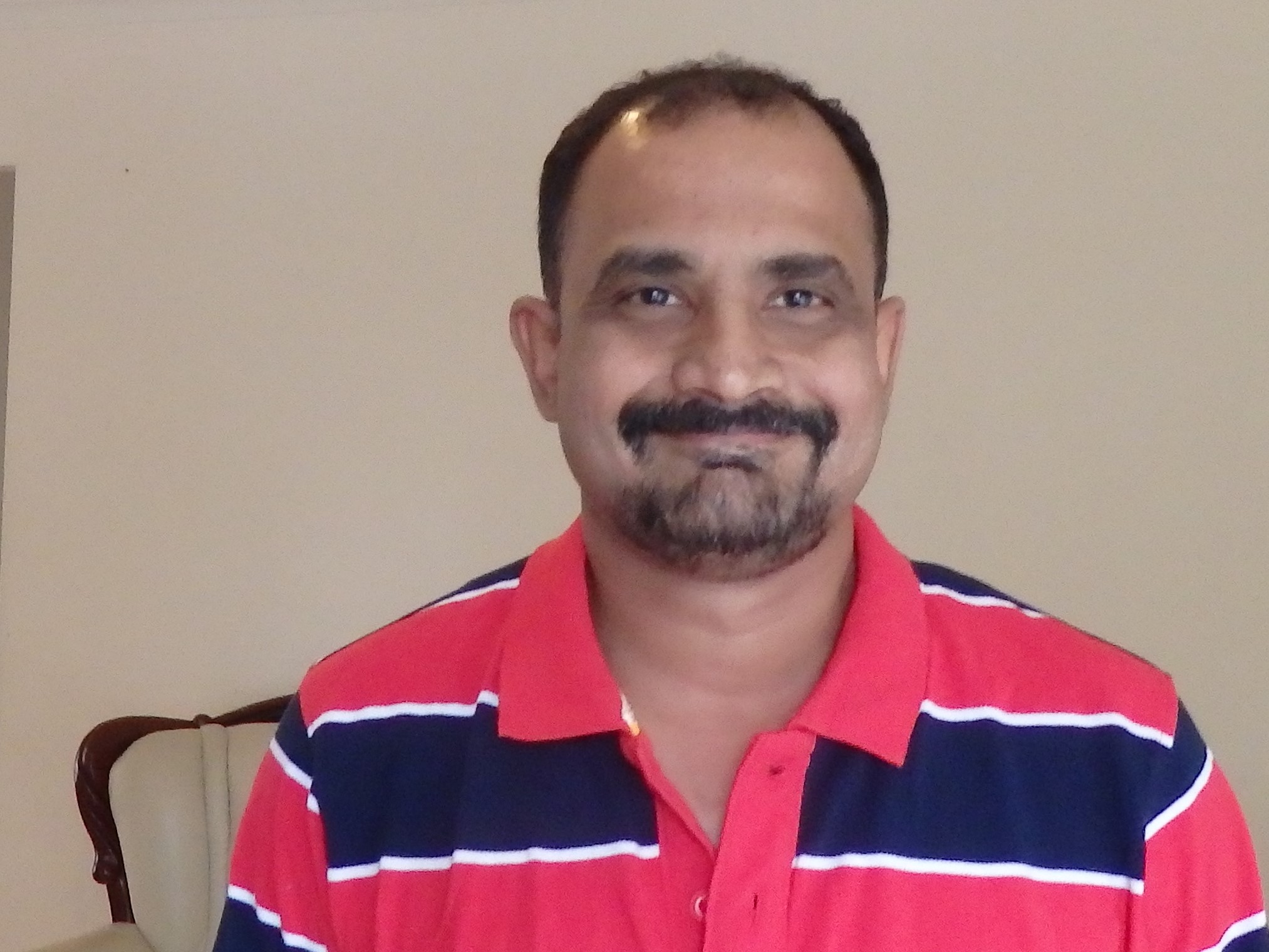Rehabilitation Science Student Profile
From sceptic to enthusiast: Advocating for online learning
By Serpil Senelmis

Edward Mohandoss is a Physiotherapist in a public hospital in Melbourne and is relishing online learning despite his early reservations. The 43-year-old who works in geriatric rehabilitation says, “I was a bit apprehensive about the online mode of study as I was not confident with IT skills.” He adds enthusiastically that he found he was “able to cope with online learning with appropriate support from staff and fellow students.”
Shaking off his initial fears about the online learning environment has meant that the busy working father of a young family can now fulfil one of his long-time goals – to complete a masters degree. He explains, “The online mode of study suited me as I am working full-time and I can’t afford to give up work to attend regular classroom sessions. The online nature of the course offered me flexibility so that I can spend time with my young family and balance the stress of full-time work. On the weekend, I have the responsibility of looking after the children as my partner works, and the online mode of study enabled me to complete both the tasks without major issue.”
For the past 8 years, Mr Mohandoss has been working with people who are 65 years and older in his rehabilitation practice, and was keen to update his skills and knowledge around rehabilitation concepts. He says he hopes “to gain knowledge on current trends in rehabilitation and basic concepts in research.” He adds, “This qualification might help me in career progression and help me participate in quality improvement projects or clinical research.”
Already part of the University of Melbourne alumni, having completed a post-graduate diploma on campus, Mr Mohandoss describes the online Master of Rehabilitation course as a confidence booster. He says,
Some of the assessment tasks such as writing a research proposal and feasibility proposal have given me immense confidence in participating in clinical research and quality improvement projects.
The highlight of online study for Mr Mohandoss has been the relationships he’s established with his peers. He says, “My favourite part of studying this course is the interaction between fellow students in the discussion boards and webinar sessions. Even if you miss the webinar sessions there is an option of watching the recorded version which was very useful for someone like me with full-time work.”
Engaging with students from all over the world has had additional benefits too. Mr Mohandoss explains that online learning has enabled him to “become knowledgeable about healthcare systems across the world.” He adds, “Given our interaction with students from different countries, it was interesting to compare similarities and differences in health care systems and its impact on patient outcomes.” Further, to Mr Mohandoss’ surprise, he’s discovered some of his colleagues “have already published papers in peer reviewed journals.”
Whilst finding it challenging to stick to a weekly study schedule while juggling full-time work and family commitments – which can be unpredictable at times – Mr Mohandoss has gained a wealth of knowledge that will boost his rehabilitation practice. He says, “Some of the skills I have gained include being able to critically analyse a body of literature like randomised controlled trials, systematic reviews and clinical practice guidelines. And I’ve improved my knowledge of concepts like the ICF model of care and challenges in applying this model in clinical practice.”
The Future looks bright for Mr Mohandoss. Already, he’s reaping the rewards of his new-found skills and confidence. He says, “The knowledge I’ve gained so far has made me a better clinician and people respect me when I share this knowledge, especially in my work place.”